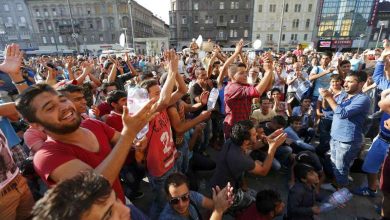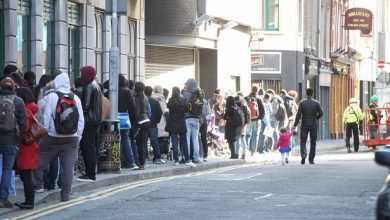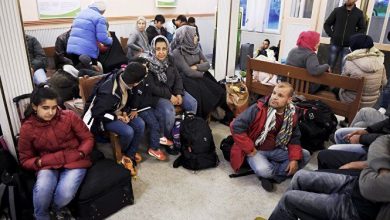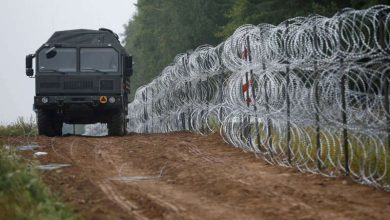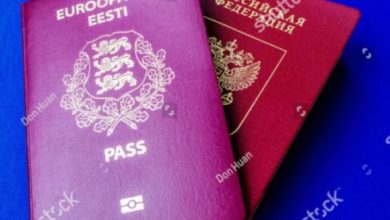Europe turns a blind eye to the problem of illegal migration
The tragedy with the sunken ship with immigrants off the coast of the Italian island of Lampedusa again raised the question of who is responsible for illegal immigrants arriving in Europe and how long Europe will turn a blind eye to the long-standing problem.
As a result of the Albanian crisis in the 90s, tens of thousands of refugees arrived in Italy and Greece. This was the first wave of mass immigration in recent history to the countries of the current EU.
Since then, the problem of illegal immigration, mainly from North Africa, has not lost its relevance. One of the most dangerous routes to Europe is still the Mediterranean Sea. In fishing boats designed for several dozens of people, hundreds are packed. People pay smugglers several thousand dollars for such a trip. Many die on the way.
According to the Agency for Refugees, last year, when trying to cross the Mediterranean Sea, about 500 immigrants died. In 2011, at the height of the revolutions in Tunisia and Libya, there were three times more deaths and missing people.
Only from the beginning of 2013, according to official figures, 8.5 thousand immigrants arrived in Europe through Italy and Malta.
Euronews correspondent Margherita Sforza discussed this topic with Philip Amaral, a member of the Jesuit Refugee Service in Europe.
Euronews: Mr. Amaral, Italy grieves over the victims of this tragedy. Refugees would have been even harder if not for the residents of Lampedusa; suggestions are being made to give its population the Nobel Peace Prize. Was the island alone in the face of this problem, and Europe does not close its eyes to it?
Philip Amaral: Unfortunately, Lampedusa is not the only one. She received hundreds of migrants this year. But so did Malta. Large flows of refugees and asylum seekers penetrate Europe through the Western Balkans. The European Union has not yet been able to ensure that these people arrive in Europe in an organized manner, asking for refugee status in the prescribed manner, while respecting fundamental human rights and dignity.
Euronews: By the way, there is, after all, the European agency Frontex, which is entrusted with controlling the borders. Where is it looking?
Philip Amaral: In my opinion, this is a big gap in European politics. Frontex plays a role in coordinating the border operations of EU member states. But when a ship with refugees crashes, these countries often cannot agree on who should save them. In recent years, we have seen how the Italian government has argued with the Maltese about who needs to deal with a particular ship, which as a result was often forced to wait for a decision of its fate on the high seas for whole weeks. The Mediterranean water area is under close surveillance from artificial satellites, all kinds of military and civilian ships. Therefore, European governments cannot justify their ignorance and neglect their obligations. It is necessary at the European level to develop a clear procedure for providing emergency assistance to a boat in distress by rescue workers from the nearest base. Then it will be possible to avoid such tragedies and prevent them at an earlier stage.
Euronews: A new EU asylum institution has been opened in Malta, there is a new European refugee system. Does it all work?
Philip Amaral: A general asylum system exists on paper; it was adopted this year. But it is not in practice. The asylum procedure in Europe resembles a lottery. If you came from Afghanistan and ended up in Greece, then the probability of you getting this status is from 6 to 7 percent. And the same Afghan, but in Italy – a 90 percent chance. The conditions here and there are very different, and this is the fundamental problem of the asylum system in Europe.
Euronews: And the new asylum system has not changed this situation?
Philip Amaral: Not yet. There are some improvements, but they are only in the legislation, that is, also on paper. Specific EU governments need to take responsibility for implementing the amended laws so that human dignity is respected.
Euronews: Do you think that part of the effort should be made by the countries where the migrants come from? We know that organized crime is behind sending people by sea. Is there anything you need to do with this?
Philip Amaral: Of course, I see one of the reasons for the lack of safe and legal ways of transporting refugees to Europe is that they have to turn to criminal circles. They fall into the hands of smugglers and traffickers. Of course, the EU needs to do more to combat this kind of crime. At the same time, it is necessary not only to hold violators accountable, but also to lay a legal human corridor in Europe so that people from other regions can arrive here safely.
Euronews: Last question. What does this tragedy tell us about European civilization? Where are we going?
Philip Amaral: The tragedy shows us that no one takes the lead in this matter. We Europeans must keep our doors open and set an example to the whole world. Let everyone know that Europe is safe, it should not have borders, high walls or death.
This post is also available in:
 English
English  Русский (Russian)
Русский (Russian)


